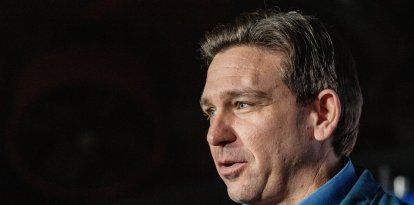Trump fired the director of the National Portrait Gallery: 'She is highly partisan'
This is Kim Sajet, who took up her post in mid-2013 during Barack Obama's administration.

Trump in the Oval Office/ Chris Kleponis.
Donald Trump fired the director of the National Portrait Gallery. She is Kim Sajet, who assumed her post in mid-2013. Through a publication on his social networks, the president justified his decision by claiming that Sajet is "a very partisan person" and a "strong supporter of DEI," referring to the concepts of diversity, equity and inclusion.
Trump made the decision after sending JD Vance to "remove inappropriate ideology" from Smithsonian museums, educational centers and other entities. The vice president's mission was to combat all personnel pushing "divisive narratives" about U.S. history.
"Upon the request and recommendation of many people, I am herby terminating the employment of Kim Sajet as Director of the National Portrait Gallery. She is a highly partisan person, and a strong supporter of DEI, which is totally inappropriate for her position. Her replacement will be named shortly. Thank you for your attention to this matter!," the president expressed on his Truth Social account.
Just a few months ago, the president also announced changes at the John F. Kennedy Center for the Performing Arts, popularly known as the Kennedy Center.
"At my direction, we are going to make the Kennedy Center in Washington D.C., GREAT AGAIN. I have decided to immediately terminate multiple individuals from the Board of Trustees, including the Chairman, who do not share our Vision for a Golden Age in Arts and Culture", wrote Trump.
What does the National Portrait Gallery do?
Unlike other traditional art museums, this one focuses exclusively on portraiture as a means of telling the country's story, highlighting figures from the past and present whose actions, ideas or legacy have shaped the United States. Among them are artists, scientists, inventors and politicians.

























